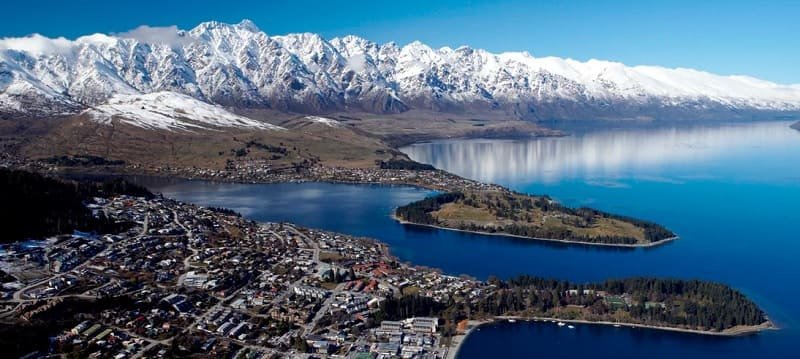New Zealand, a country renowned for its spectacular natural landscapes and rich Maori heritage, has announced a significant increase in its entry tax for foreign tourists, which some fear could discourage potential visitors. Effective from 1 October, the International Visitor Conservation and Tourism Fee (IVL) will almost triple, rising from NZ$35 (£16.52) to NZ$100 (£47.20). The decision has sparked debate among tourism sector stakeholders, highlighting the delicate balance between boosting economic growth and maintaining New Zealand’s appeal as a top global destination.
Government rationale: Boosting the economy and protecting public services
The New Zealand government has defended the move, arguing that the increased fee is vital to sustaining economic growth and ensuring that foreign tourists contribute more to public services and high-quality experiences while in the country. Tourism Minister Matt Doocey said, “Visitors place additional demands on infrastructure and services. The updated fee reflects the real cost of maintaining these standards.” He emphasized that the revised fee would still be less than 3% of the average tourist spend in New Zealand and pointed out that the country’s prices remain competitive compared to other destinations such as Australia and the UK.

Tourism industry concerned: “A barrier to visitors”
However, New Zealand’s independent tourism body, Tourism Industry Aotearoa, has raised concerns. They believe the new fee is excessively high and may discourage potential visitors, further complicating the country’s already sluggish tourism recovery after the pandemic. “New Zealand’s tourism recovery has lagged behind the rest of the world and will further reduce our global competitiveness,” said Rebecca Ingram, the association’s chief executive. She emphasized that for many travelers, especially those on a budget, such a high fee could become a key factor in deciding whether or not to visit New Zealand.
Although New Zealand holds a magnetic allure with its glaciers, mountains, volcanoes and lakes, its remote location in the South Pacific often requires expensive long-haul flights. The increase in entry taxes may make travellers think twice, especially considering that the new costs will come on top of separate visa fees for some visitors, which are set to increase from October 1.

Balancing growth with environmental and social responsibility
New Zealand initially introduced the International Visitor Conservation and Tourism Levy in 2019, with the aim of addressing the impact of high visitor numbers on the country’s infrastructure, environment and communities. The tourism boom in the years before the pandemic had led to pressure on local resources, overcrowding of attractions and environmental degradation. The levy was seen as a means of managing these challenges, with the money being channelled into conservation efforts and improving tourism infrastructure.
However, the outbreak of the COVID-19 pandemic abruptly halted global travel, and New Zealand’s borders were closed for two and a half years. The country did not allow foreign visitors to return until August 2022, and since then its tourism industry has struggled to return to pre-pandemic levels. In 2023, the number of international visitors remained around three million, about three-quarters of the number before the pandemic. As global travel continues to grow, there are concerns that raising the fee could hamper the revival of one of New Zealand’s most important economic sectors.

How does New Zealand compare globally?
New Zealand is not alone in imposing a tourist tax. Many countries around the world have implemented similar fees, often included in the cost of accommodation, visas or plane tickets. In Europe, for example, Spain, France, Austria and Croatia all impose tourist taxes, while countries such as Indonesia, Costa Rica, Iceland and Italy have also adopted this approach. In some cases, such as Venice in Italy, a day visit tax was recently introduced to combat over-tourism, with day visitors charged €5 on busy days.
Minister Doocey stressed that when comparing New Zealand’s entry tax to other international fees, the increase is relatively modest. Furthermore, the tax will not apply to visitors from neighbouring Australia and Pacific countries, who make up a large proportion of New Zealand’s tourists.
The tourism and sustainability debate
The debate over New Zealand’s tourist tax increase brings to the fore a broader discussion about sustainable tourism. While the tax increase aims to ensure that tourism remains an economic driver without overburdening the country’s resources, it also reflects a shift towards a more sustainable and responsible tourism model. The money generated is expected to be used towards preserving New Zealand’s unique natural heritage, such as its national parks, and supporting community-based tourism initiatives that promote local culture
